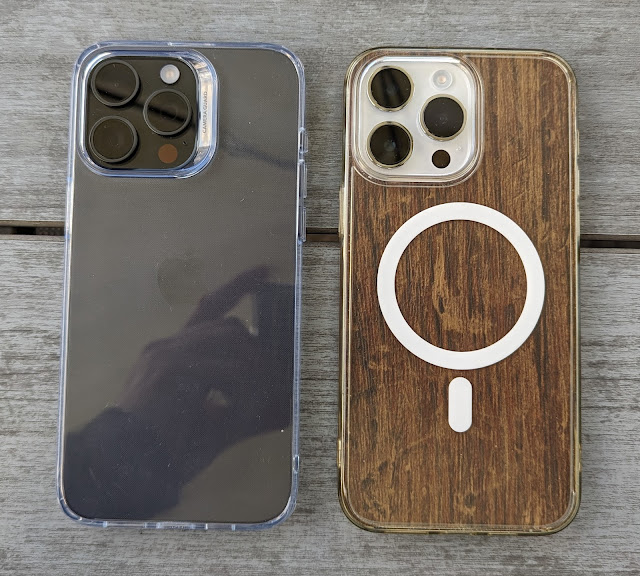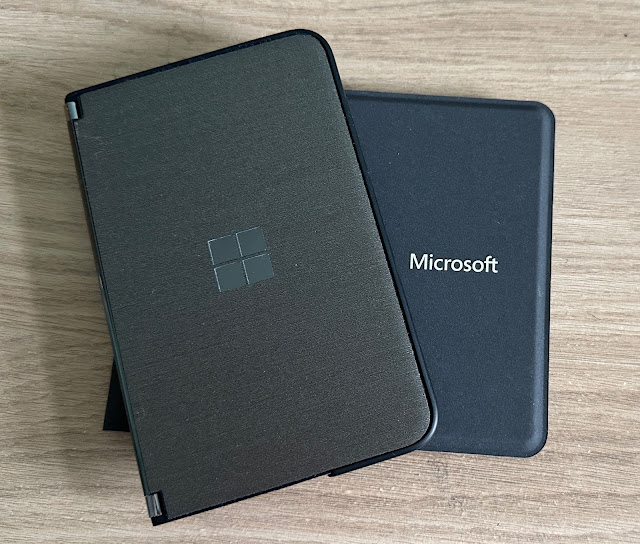Fresher Fresh Blood: the joys of remastering music
I have to confess that I don't totally 'get' the fascination of some for old vinyl records - of course, the huge cardboard area for artwork and lyrics is enviable and I loved this too in the 1970s. But the sound quality, in terms of scratches and rumble and constant wear and tear every time the vinyl is played had me running for CDs when the format came in, in the 1980s.
So, forty years later, surely I'm sorted in terms of all my favourite albums? Well, not really. Not 100%.
You see, first vinyl, then cassettes, then CDs were all produced from imperfect workflows in one way or another. Regardless of being produced from original studio master tapes. Vinyl would have been stamped from a gold master, itself created from a stereo mix of the original audio, itself often 'bounced around' within the studio track/tape system. And then each copy degrades, as I said just now. Ditto cassettes, though with at least one extra copying step, added to all the fragility and (again) wear factors.
The early CDs tended to be copies of a stereo mix (even in some cases, copies of a vinyl record!) and were unspectacular. Plus there were limitations of 1960s and 1970s technology in terms of recording dynamic instruments (think deep bass and shimmering treble).
As the 1980s wore on, more and more artists started recording digitally, meaning that more fidelity could be kept intact and, importantly, transferred directly through a stereo digital master onto CD. Things got better very quickly, and most albums since the late-1980s have been left largely intact, other than the original artist's ideas on remixing and adding extra material.
What's interesting to me here though, is taking 1970s material in the form of original studio master tapes and digitising them with a high sample rate, track by track, in the modern age, then remixing and remastering them on a computer to produce a super-clean, super-clear version that's as close as it's possible to get to what the artist was recording and hearing in the studio fifty years ago.
Steven Wilson is one such high profile remaster(er), having processed original studio tapes from Yes, King Crimson, and Hawkwind (among others), there's a good article on how he goes about his craft. But there are many others doing good work and this article was inspired by me tracking something down by an artist you won't have heard of, Steve Swindells (wiki link).
Being a huge 1970s Hawkwind fan, I was aware of Steve as a member of the band from 1978-1979, and particularly his use of Hawkwind's Simon King and Huw Lloyd-Langton (for whose web site I was webmaster for a decade circa 2010) as backing musicians for his own (second) solo album Fresh Blood (wiki link).
I bought Fresh Blood on vinyl at the time, but the artefact had long been lost when I ditched my 200 or so LPs to save space circa 1990. Very sadly! With the rise of the Internet and file-sharing systems in the early 2000s, I was able to download a MP3 digital copy of the album from other fans. Which was better than nothing, but the files had clearly been taken from someone's vinyl and the audio fidelity wasn't that good. Everything sounded a little flat and muddied.
Then, a month ago, listening to this old copy of a vinyl release again, and doing a little digging, I found out to my astonishment (via one of Steve's Soundcloud pages) that Fresh Blood had been remastered by Ben Wiseman at The Audio Archiving Company back in 2009 and re-released on CD! In fact, they obviously didn't make very many, since even in 2023 on file sharing networks, I can still only find the original LP version, so not a single owner of the CD has ripped it and made it available*.
* (I know, I know, technically illegal, but in my case I only grab stuff I've bought originally and thus have already paid the artist their dues, and would recommend others have the same approach.)
The CD came with a 16 page booklet on the album's creation and some of Steve's story, and happily I found a copy in the USA, which arrived a few weeks later, and shown here:
A happy collector, though if you're curious too then the wonder that is the digital music world means that you can now buy the remastered album, it's now available on Amazon in MP3/streaming here. As for the booklet, its textual contents are also officially online.
What matters at the end of the day is the music though, and it's top notch. Ben's remastering takes the individual instruments, cleans up, EQs, and compressed their audio, and then remixes them with full digital clarity. So it's going from original studio tapes directly through to your ears with no 'loss'. Every tap of a cymbal, every subtlety in a guitar chord, every wobble in a synth line, all easy to appreciate and enjoy, especially over headphones.
I did note that the remastering was done with full cooperation with Steve Swindells himself, so perhaps it's not surprising that his vocals and keyboards are perhaps slightly more to the fore than in the original mixes! But it's his music, so why the heck not. Fair play.
I love remastered 1970s music. It's taking the best decade for music (I contend) and bringing it into the 2020s with such clarity that it 'could have been recorded yesterday'. Fresh Blood is just one tiny example of the remastering art - if you have favourite 1970s bands then why not seek out 'remastered' versions of their classic output? There's a good chance that someone, in the intervening half century, has spent time and money to process the old studio tapes!
PS. Steve Swindells is still going, producing music and involved in various projects (Facebook link).
PPS. If you like this feature and want to support my work then please do so here via PayPal. Thanks.




Comments